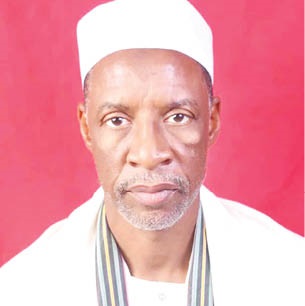By Kabiru Zubairu
In an insightful interview with Daily Trust, Professor Kamilu Sani Fagge, a political scientist at Bayero University, Kano, has shed light on the powerful influence of cabals surrounding Nigerian presidents, emphasising their interference in governance compared to practices in other countries.
Speaking on the men around President Bola Ahmed Tinubu, Professor Fagge highlighted the concept of “kitchen cabinets” and “deep states,” groups of confidants and influencers who shape a president’s policies.
“In many countries all over the world, there are certain formal and informal groups that exercise influence on the president. Formerly, they were known as inner or kitchen cabinet, comprising confidants of the president. They are usually very loyal, and they are the ones that exercise great influence on policies made by the president,” he explained and further noted a stark difference in Nigeria.
“Usually, in other climes, kitchen cabinets or the deep state are formal and constitutionally recognised… They exercise influence but don’t interfere the way we are seeing it in developing countries, especially here in Nigeria,” he said.
Shielding the President
Commenting on the pervasive presence of cabals in Nigerian leadership, Professor Fagge stated that such groups often isolate the president from the populace, distorting governance.
“What we are having now is a group of people who tend to shield the president from the people; and they exercise a lot of influence. Most of them are personal acquaintances to the president,” he said.
He pointed to historical examples, including late President Umaru Musa Yar’Adua and former President Muhammadu Buhari.
“During Yar’Adua, we had people that were so powerful that even when he was ill, they did not allow Nigerians to know the actual situation. Even during Buhari’s time, we had a cabal that directed state policies. In fact, they became so powerful that even constitutionally recognised institutions had to go through them.”
Managing Nigeria Is Not Managing Lagos
Addressing criticisms of Tinubu’s governance style, particularly the influence of former associates from his time as Lagos State governor, Professor Fagge warned against applying state-level policies to the complexities of Nigeria.
“The reality is that those people are the ones he had links with when he was governor. But now, they are trying to make him act as if the policies he took in Lagos are applicable to Nigeria. That is why people are crying. Nigeria is more complex than Lagos,” he said.
He urged the president to adopt a broader perspective, stating, “The president is not for the cabal but Nigeria because he was elected by Nigerians, so he has to look beyond such group of persons.”
The Way Forward
Professor Fagge proposed that the president must prioritise democratic principles and open channels of communication with Nigerians to address their concerns.
“The way out of this problem is for the president to accept the fact that he is a democratically elected president. He must be responsible to Nigerians, not very few members of a cabal,” he said.
He further advised, “Whatever members of the cabal think the president wants is what they will let him know; and they will shield facts from him. So, he has to acquire such knowledge and facts from other sources… Formally, there are channels in security agencies saddled with the responsibility of informing the president. Then informally, he has other contacts and trustees in other places.”
Professor Fagge concluded with a call for openness and inclusivity in governance.
“The sooner the president or any leader is open to the people, the better for him and the country.”
This call for transformative leadership comes as Nigerians continue to scrutinise the decision-making processes within the presidency amidst economic and political challenges.
